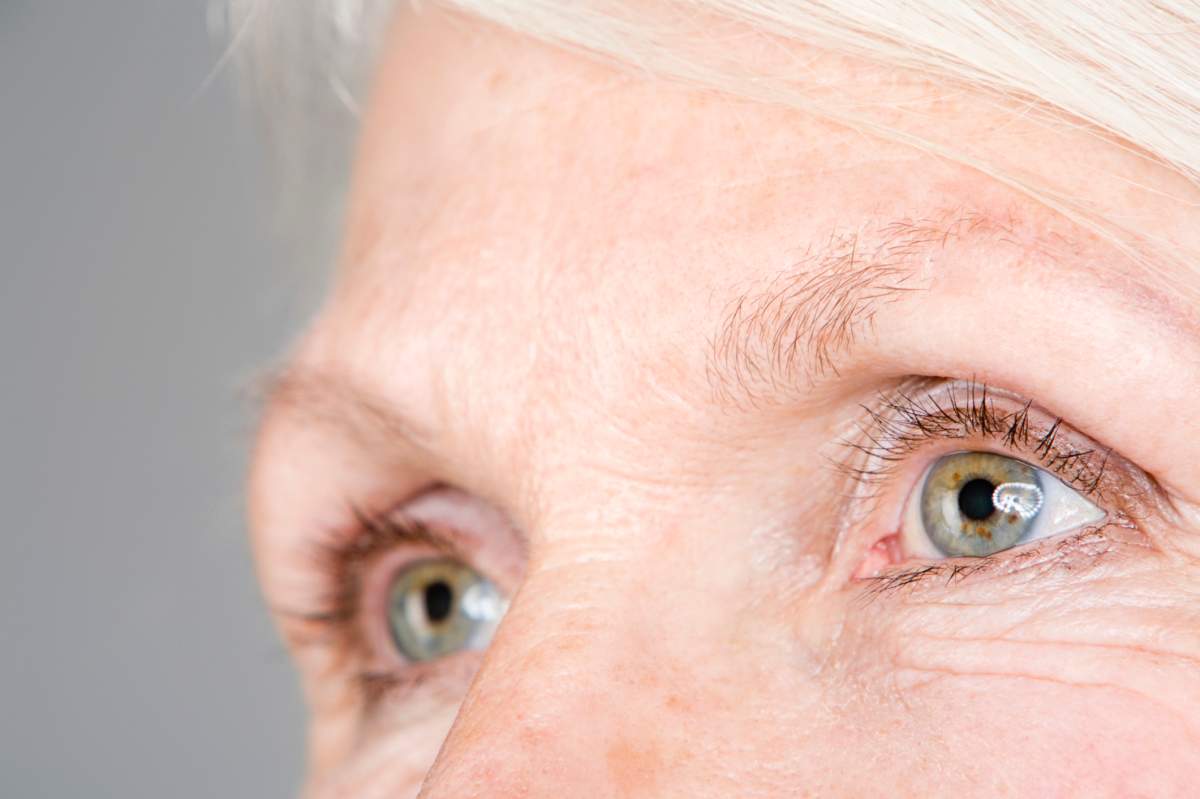Linda Maendel can’t remember when or how she injured her right eye, but it took years for the 55-year-old to finally correct her blurry vision physicians said was caused by some sort of trauma.

At first, however, no one knew what the problem was, forcing Maendel to hop between eye specialists, which all tried their hand at solving her vision problem with temporary fixes.
READ MORE: How to tell if your kids are suffering form digital eye strain
First, it was glasses, but they didn’t work. Next were contact lenses, which only worked for a few years. It wasn’t until recently where her ophthalmologist suggested a corneal transplant, and three months ago her vision finally began improving.
“Things are going very well,” Maendel says. “My vision has improved but it is still a bit blurry, but that’s understandable as it can take up to a year for it to be fully clear. I’m just very grateful for skilled surgeons and organ and tissue donors.”
Maendel has always been very vigilant about her eye health, she says, and goes for regular checkups – something she’s done even before the surgery too.
But not all Canadians are like Maendel.

Get weekly health news
According to Dr. Setareh Ziai, assistant professor of ophthalmology at the University of Ottawa Eye Institute, vision is one part of the body many people take for granted.
“People don’t always think about their vision until something goes wrong,” Ziai says. “It’s then when you realize how important it is to you.”
Even though it may not be at the forefront of everyone’s minds, Ziai believes that, overall, Canadians find eye health important to their well-being.
“Because access to eye health examinations is pretty good across the country – especially in larger centres – I think Canadians are pretty adept at having their eyes examined, especially those who have medical conditions,” she says. “And I think the newer generation of parents, I’d say for the past 20 years, have been really good at ensuring that their children are examined early on.”
But as Oct. 12 marks World Sight Day, Ziai and the Canadian Ophthalmological Society want Canadians to know the importance of prevention and early detection when it comes to eye health.
According to CNIB – a Canadian agency and organization dedicated to assisting those who are blind and live with vision loss – few people realize that about 75 per cent of vision loss is preventable. The World Health Organization (WHO), however, puts that number as high as 80 per cent.
It’s estimated that about half a million Canadians currently live with significant vision loss, and every year 50,000 additional Canadians will lose their eyesight, CNIB reports.
Worldwide, the WHO estimates that 285-million people are visually impaired.
Eye health, Ziai says, is important to keep on top of because it can be an indicator of other health issues.
READ MORE: Misusing contact lenses? 5 mistakes you’re making that hurt your eye health
“When your pupils are dilated, we have a direct view into the nervous system of the eye,” she says. “It’s the only part of the nervous system that we can examine. So we can see diseases such as hypertension, high blood pressure, diabetes and many different blood disorders.”
Both prevention and early detection are key when it comes to eye health, Ziai explains.
To prevent eye issues from developing, Ziai suggests doing a few things: wear protective eyewear when outdoors, prevent projecting objects (like removing rocks before mowing the lawn) and practice proper contact lens care if you wear contacts.
But sometimes conditions can develop due to other factors.
The most common symptoms people ignore, Ziai says, are signs of floaters or spots in vision, decreased vision in one eye, halos around lights and double vision.
While these can be indicative of many health issues, these symptoms can be signs of a retinal tear or detachment, for example.
“Floaters and flashing lights are common complaints,” she says. “A lot of the times that can be benign but what we need to do is to make sure it’s not caused by something like a retinal tear or detachment, which can affect the vision long-term.”
She adds, “Some ocular conditions – if you were to become a victim of one of those, you’d have symptoms severe enough that you would rush yourself to a hospital to see an ophthalmologist. But other conditions are silent diseases, and some like glaucoma, for example, many people won’t even know they have it if they’re not examined for it by either an optometrist or ophthalmologist.”









Comments